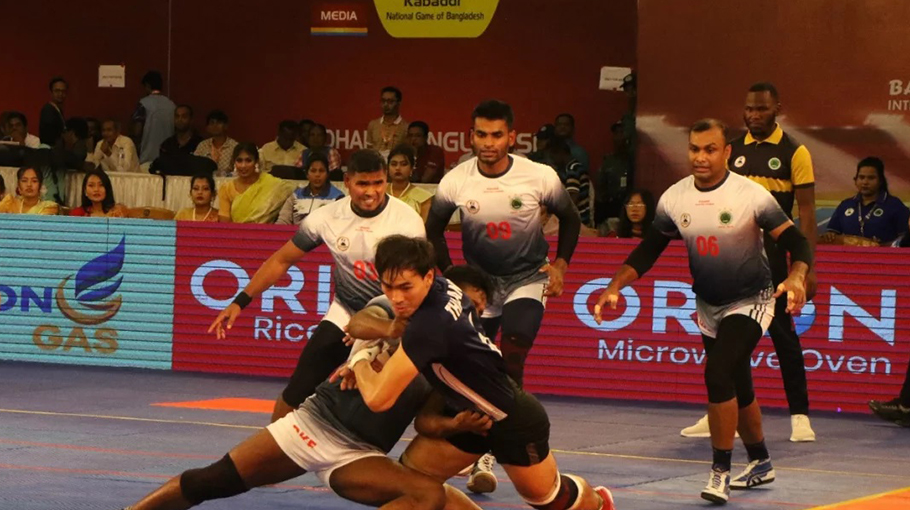Kabaddi grapples for relevance


Hadudu, or Kabaddi as it's known internationally, is facing an uphill battle in Bangladesh, the nation it proudly calls home. Despite its status as the national sport since 1972, a time when Bengali Kabaddi held considerable global influence, the sport finds itself relegated to the shadows in the modern era.
The culprit? The relentless march of commercialization. Cricket, football, and a plethora of other sports have become awash with financial resources, leaving Kabaddi players struggling to scrape by. This harsh reality is forcing the national sport to take a back seat. The Bangladesh Kabaddi Federation (BKF) itself is grappling with a severe financial crisis.
Raider Aruduzzaman Munsi paints a bleak picture, revealing that players receive a paltry 200 taka per day, amounting to a meagre 6,000 taka a month. This pittance is simply not enough to sustain a rural athlete, effectively discouraging talented players from pursuing the sport.
Financial woes are just one hurdle. Kabaddi's decline is further exacerbated by a lack of competitive opportunities. Currently, the sole venue for sanctioned Kabaddi matches is a single ground in Paltan. This scarcity cripples the sport's growth.
Gazi Mozammel Haque, Chairman of the BKF's Technical Committee, minces no words: "Without addressing the field issue, advancing Kabaddi in the country is simply impossible."
Haque elaborates, "We have a single venue. Both boys and girls train at this one ground. Senior players miss out on practice due to this congestion. Tournaments become a rarity. This overreliance on a single venue creates a myriad of problems."
Despite these challenges, the BKF remains optimistic. Their ambitious plan aims to re-establish Bangladesh as a Kabaddi powerhouse.
The Chairman outlines their vision: "If we can organize Kabaddi matches across every district, even if it just involves local players, we can unearth a wealth of talent.
We aim to implement a proper salary structure for our players, integrate them into a dedicated national team, and incentivize women's participation in the sport."
The BKF and those involved in Kabaddi, from players to coaches and officials, are steadfast in their belief that the Bangladeshi public still holds dear this traditional sport. With the right approach, they believe they can reignite the nation's passion for Kabaddi.




